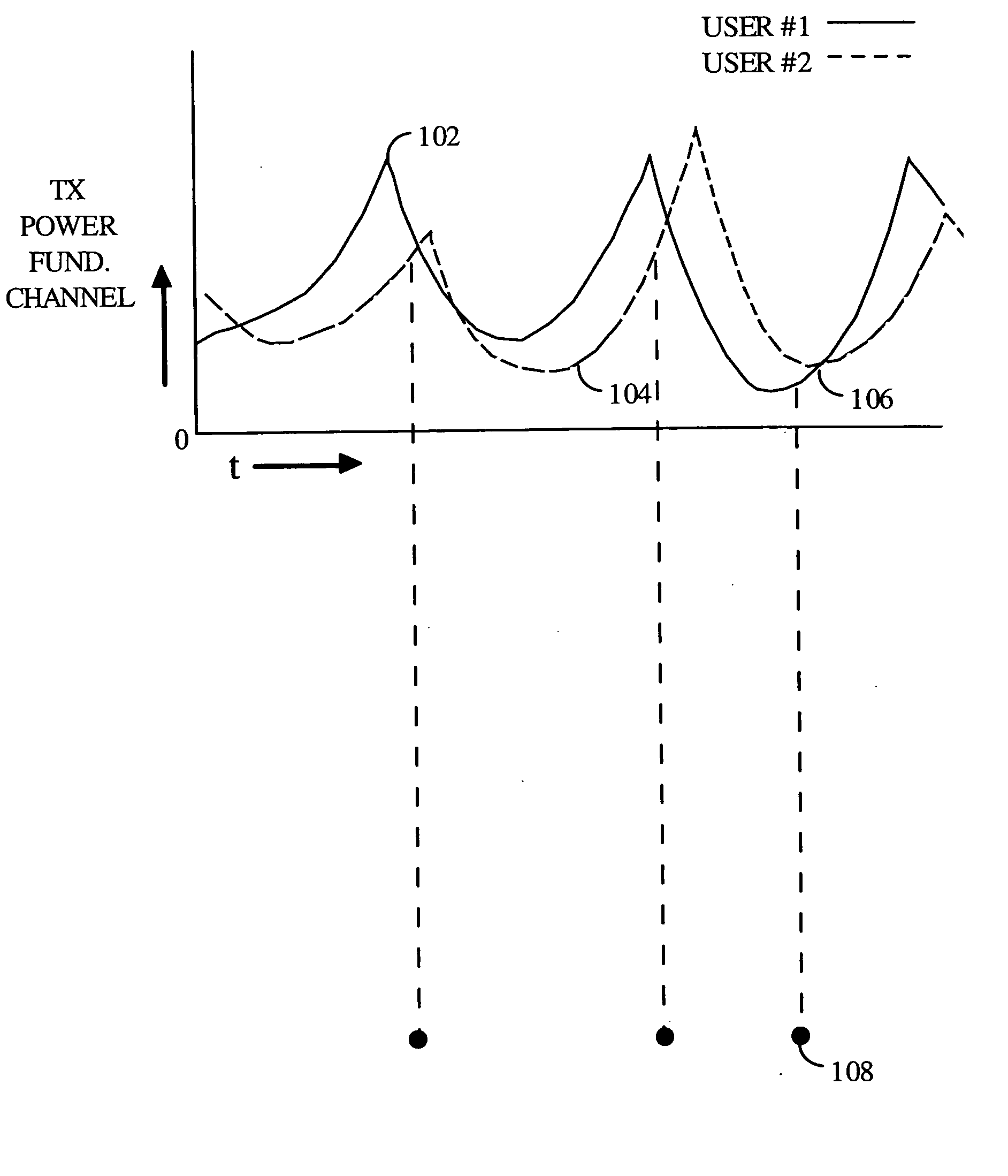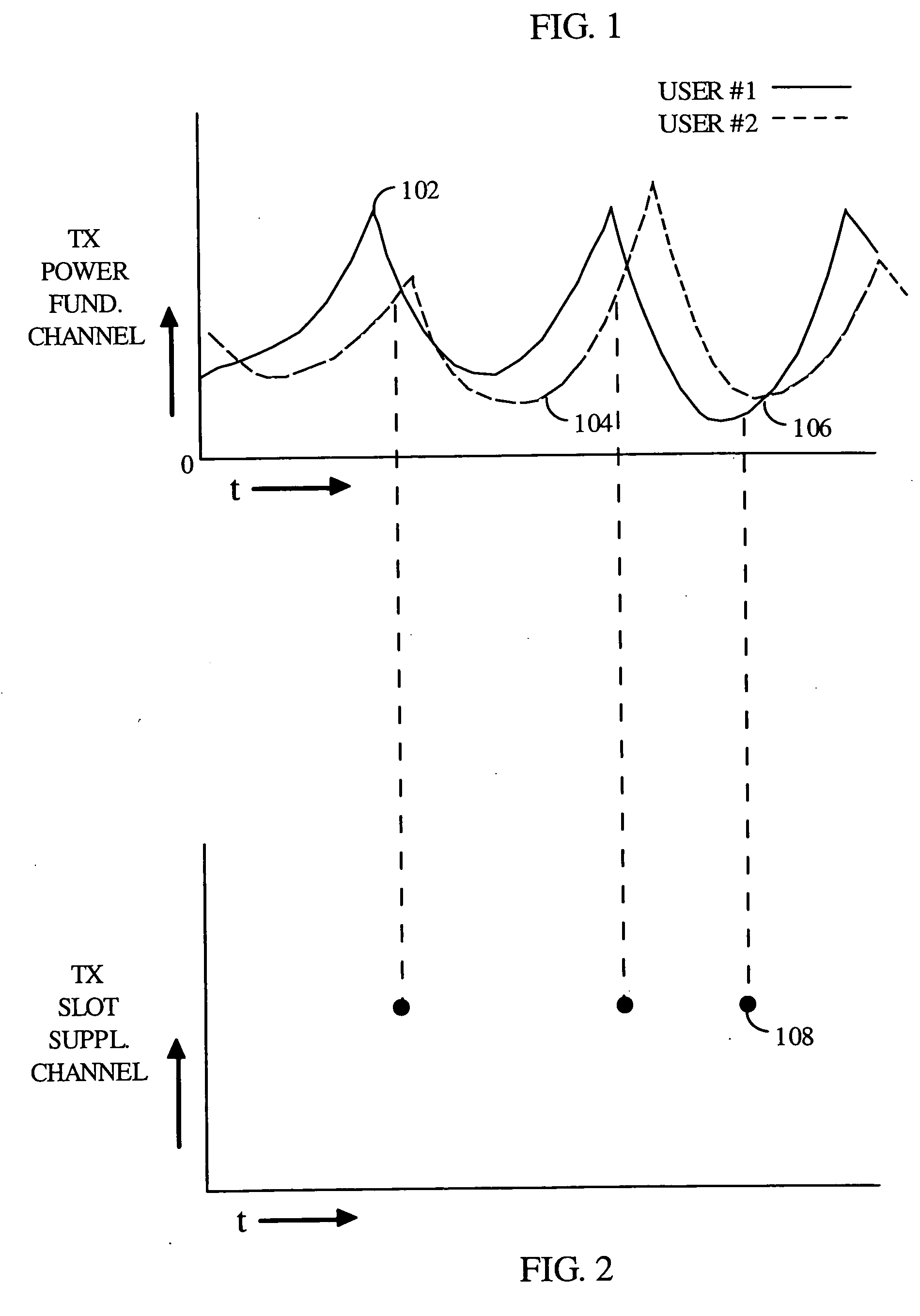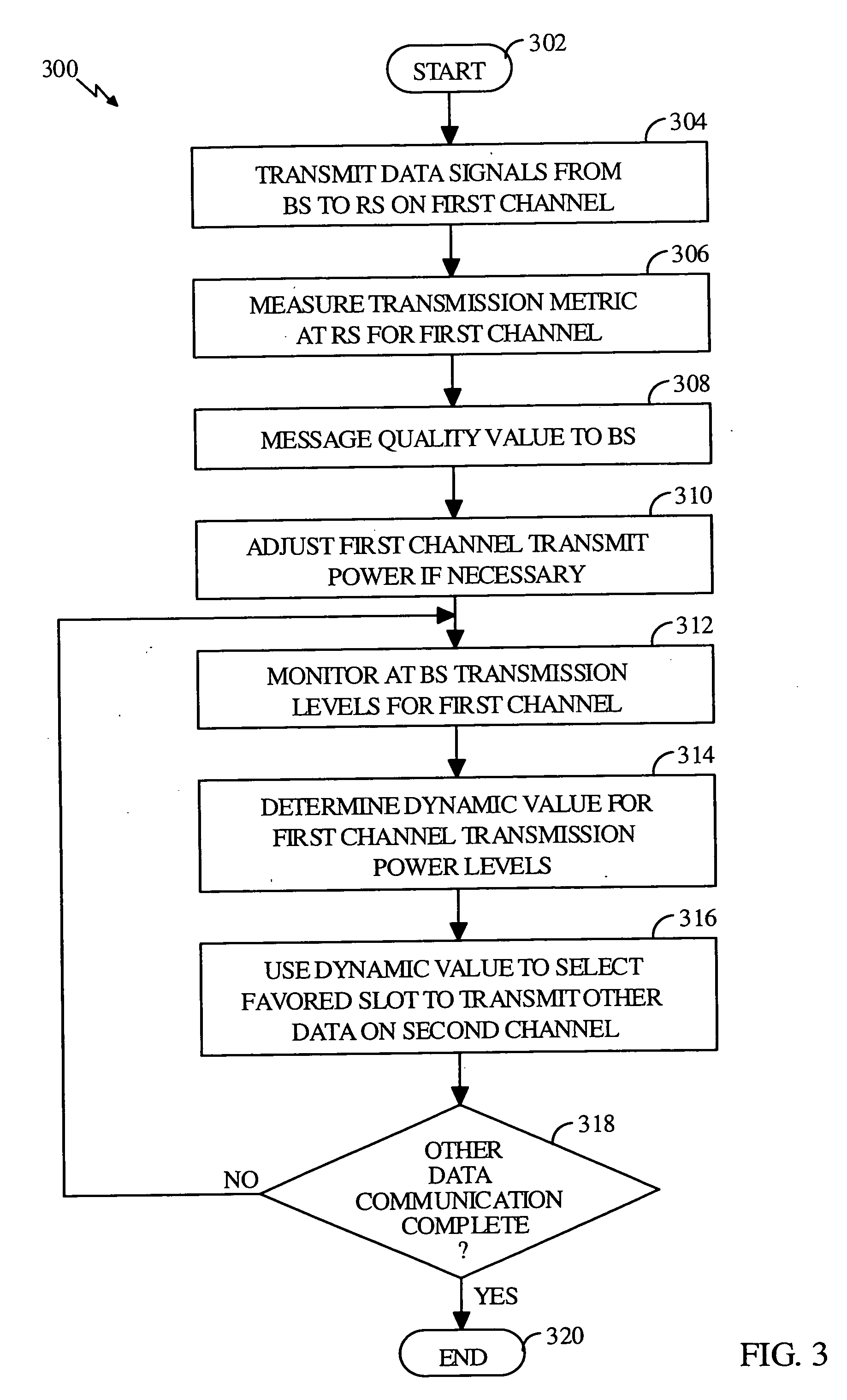Forward-link scheduling in a wireless communication system
a wireless communication system and forward-link scheduling technology, applied in the field of wireless communication, can solve the problems of stringent fixed delay requirements of voice services, delay cannot be ignored, and the quality of transmitted voice data or non-voice data cannot be significantly degraded when received, so as to reduce system resource costs and facilitate transmission slots
- Summary
- Abstract
- Description
- Claims
- Application Information
AI Technical Summary
Benefits of technology
Problems solved by technology
Method used
Image
Examples
Embodiment Construction
FIGS. 1-9 illustrate examples of the various method and apparatus aspects of the present invention. For ease of explanation, but without any limitation intended, the apparatus examples are described in the context of a signal processing apparatus that may be embodied by various hardware components and interconnections. Further arrangements for these signal processing apparatuses will become apparent to anyone skilled in the art after reading the descriptions that follow.
Operation
IS-95 supports medium data (MDR) transmission of data by allowing a base location (BS) to communicate with a remote station (RS) using up to eight (8) forward links and up to eight (8) reverse links. Further advances have been made allowing for even higher data rate (HDR) transmissions using somewhat similar systems. Generally, data can be more efficiently communicated between a BS and a RS if it is transmitted at the lowest possible power level required for maintaining the quality of the communication.
T...
PUM
 Login to View More
Login to View More Abstract
Description
Claims
Application Information
 Login to View More
Login to View More - R&D
- Intellectual Property
- Life Sciences
- Materials
- Tech Scout
- Unparalleled Data Quality
- Higher Quality Content
- 60% Fewer Hallucinations
Browse by: Latest US Patents, China's latest patents, Technical Efficacy Thesaurus, Application Domain, Technology Topic, Popular Technical Reports.
© 2025 PatSnap. All rights reserved.Legal|Privacy policy|Modern Slavery Act Transparency Statement|Sitemap|About US| Contact US: help@patsnap.com



